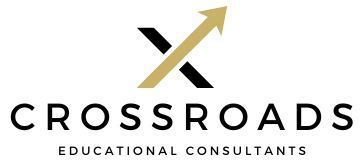
Elective Home Education on the Rise
The number of children recorded as Electively Home Educated (EHE) has risen sharply in the past year — from 6,156 in 2023/24 to 7,176 in 2024/25. That’s an increase of over 1,000 pupils in a single year, a rise of 16%.
At Crossroads Educational Consultants, we work with home-educating families every day. To us, these numbers are not just statistics: they represent real lives, real frustrations, and real hopes. They show families making a conscious choice to step away from a system that isn’t working for their children and to build something more meaningful in its place.
Why Families Are Choosing Home Education
Few families set out on their educational journey planning to home educate. Most arrive here after exhausting other options in mainstream schooling.
- Unmet needs: Many children spend extended periods in “nurture” rooms or withdrawn spaces, not because they are thriving there, but because it was easier to remove them than address the deeper issue.
- Isolation in school: We see children who have been cut off from the rhythm of daily school life, left on the side lines while learning passes them by.
- Overlooked learners: Perhaps most commonly, we meet families whose children quietly kept their heads down in class, avoiding attention for fear of being picked on, while slowly slipping further behind.
These aren’t rare outliers. They are consistent stories we hear week after week.
Case Study 1: “Head Down, Invisible”
One young person we supported had barely spoken in class for years. Teachers described them as “well behaved” — but at home, their parents saw the toll it was taking. They would come home exhausted from a day of trying to disappear. By the time they joined us, their confidence was at rock bottom. Within a few months of home education, learning at their own pace and talking openly about their interests, they began to thrive — discovering a passion for history that no one at school had ever known existed.
The Pressures Facing Schools
It is essential to acknowledge the reality of the classroom. A teacher faced with 34 pupils cannot realistically provide bespoke learning for every child. Add in the constant management of disruption, behaviour issues, or safeguarding concerns, and the quieter students — the ones who do not demand attention — too often fade into the background.
At Crossroads, we are clear: this is not about blaming teachers. The dedication of staff is unquestionable. The challenge is systemic. The structure of mainstream schooling leaves gaps, and children are falling into them.
Case Study 2: “Removed but Not Learning”
Another student we met had spent weeks in a nurture room after struggling with anxiety. On paper, they were being “supported.” In reality, they were sitting in a small room, completing worksheets in isolation, with no meaningful progress being made. At home, with the support of their family and our tailored courses, their spark returned. They now regularly contribute to group sessions at Crossroads and have developed an interest in environmental science that could shape their future studies.
What Home Education Can Offer
For families who make the leap, elective home education provides a radically different environment:
- Freedom from noise and fear: No more constant background disruption, no fear of being singled out.
- Pace and personalisation: Learners move quickly when they’re ready, slow down when they need to, without fear of “falling behind.”
- Authentic learning: Education becomes part of life — whether through cooking, visiting wildlife parks, helping relatives with work, or exploring hobbies in depth.
- Choice in subjects: Instead of being pushed into option blocks that suit staffing, learners choose subjects that genuinely matter to them.
Case Study 3: “Forced Into the Wrong Subjects”
We supported a student who desperately wanted to pursue art and design. Their school, due to staffing constraints, placed them in business studies instead. Unsurprisingly, their motivation plummeted. Once home educated, they were free to focus on art alongside English and maths. That freedom to follow their passion not only reignited their enthusiasm for learning but also improved their core subject grades.
Home Education: Not a Silver Bullet, But a Vital Choice
We stress to families that home education is not easy. It demands time, patience, and resilience. But it is an option — and for many, it is the only option that restores joy in learning.
Think of it like your phone. The standard apps work for some, but most people download others, customise their settings, and upgrade to versions that do what they need. Education should be no different. Families should be able to adapt and personalise their child’s learning journey.
The Bigger Picture
The increase from 6,156 to 7,176 home-educated pupils is more than a statistic. It is a signpost. It tells us families are increasingly unwilling to accept a one-size-fits-all education. They want — and need — alternatives.
For Crossroads, this growth is both a challenge and an opportunity. A challenge, because support and structure for home-educating families must keep pace. An opportunity, because it shows personalised, flexible learning is no longer on the margins. It is becoming central to the way families think about education.
Our Commitment at Crossroads
At Crossroads Educational Consultants, we stand alongside families making this choice. We provide structured pathways, GCSE opportunities, and learning experiences that build confidence and independence. We know the obstacles many families have faced, and we are committed to helping them move forward.
The rise in home education is not accidental. It reflects families seeking dignity, flexibility, and meaningful education. As this movement grows, it deserves recognition, support, and respect.
Education your way. That’s what Crossroads is here to make possible.
Share



